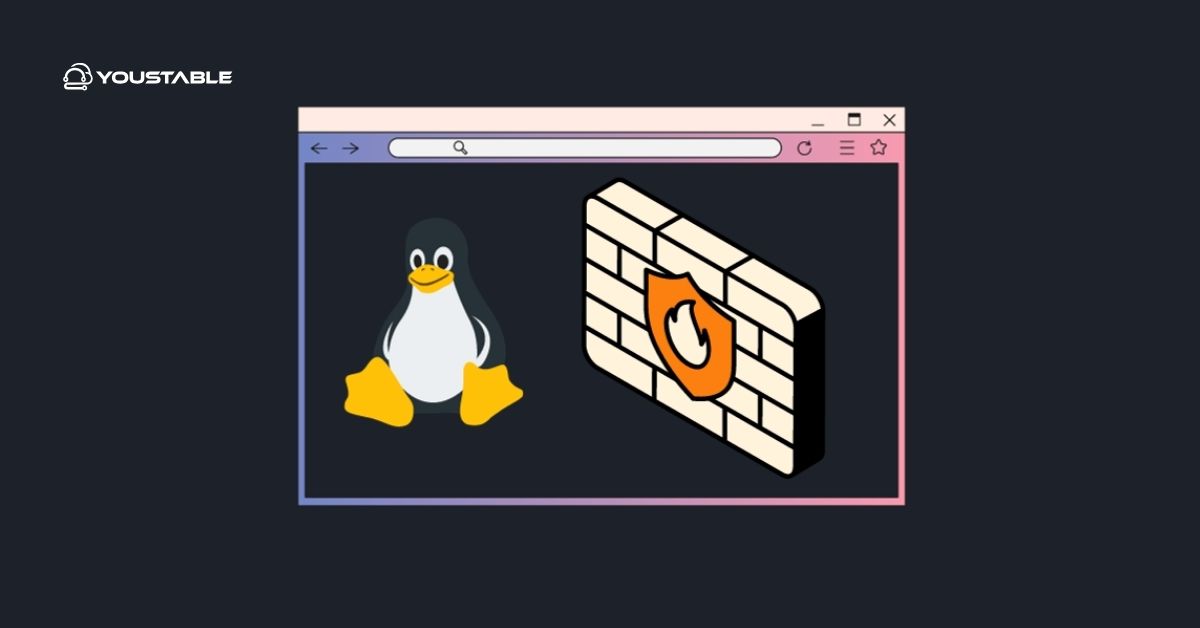UFW (Uncomplicated Firewall) is a user-friendly firewall management tool for Linux that simplifies the configuration of iptables. Learning to optimize UFW on a Linux server is essential for system administrators who want to maintain secure network traffic while ensuring efficient performance and minimal overhead.

In this article, we will guide you through tuning UFW configurations, managing rules efficiently, monitoring firewall activity, troubleshooting common issues, and implementing best practices to maintain a secure and optimized Linux server environment.
Prerequisites
Before optimizing UFW, ensure your Linux server meets the following requirements:
- UFW installed: Verify with
ufw status - User permissions: Root or sudo-enabled user
- System updates: Packages updated (
apt update && apt upgrade) - Services to protect: Ensure critical services are running (SSH, HTTP, etc.)
- Backups: Backup existing UFW rules and configurations
Having these prerequisites ensures smooth optimization without accidentally blocking legitimate traffic.
Steps to Optimize UFW on Linux Server
Optimizing UFW involves managing rules efficiently, enabling logging, and restricting unnecessary traffic. Proper optimization ensures faster firewall processing, reduced server load, and enhanced security without compromising accessibility for legitimate users.
Step 1: Check Current Status
Before applying changes, it’s important to review the current firewall state. This ensures you understand existing rules and prevents accidental disruptions.
sudo ufw status verboseStep 2: Enable Essential Rules
Allowing only critical services ensures necessary access for users while blocking unnecessary protocols that could become security risks.
sudo ufw allow ssh
sudo ufw allow 80/tcp
sudo ufw allow 443/tcpStep 3: Remove Unused Rules
Over time, lingering rules can accumulate and cause confusion. Cleaning them up improves firewall efficiency and minimizes misconfigurations.
sudo ufw delete allow 21/tcpStep 4: Enable UFW
With your core rules defined, activating the firewall enforces them immediately, ensuring the server is protected against unwanted traffic.
sudo ufw enableStep 5: Enable Logging
Monitoring firewall activity provides insights into blocked connections and helps in troubleshooting potential security incidents.
sudo ufw logging onConfiguring UFW
Beyond basic optimizations, UFW can be customized for stronger attack prevention, fine-grained access control, and efficient packet handling.
Step 1: Set Default Policies
Defining default rules establishes a baseline security posture. Denying all incoming traffic by default adds a layer of protection against unknown threats.
sudo ufw default deny incoming
sudo ufw default allow outgoingStep 2: Configure Rate Limiting
Rate limiting protects critical services like SSH from brute-force attempts. Restricting repeated connection attempts reduces potential attack vectors.
sudo ufw limit ssh/tcpStep 3: Add Custom Rules
When you need more control, custom rules allow you to define access tailored to specific IPs, enhancing both security and flexibility.
sudo ufw allow from 192.168.1.100 to any port 22Step 4: Reload UFW
After modifying rules, reloading ensures changes take effect seamlessly without requiring a service restart.
sudo ufw reloadTroubleshooting Common Issues
Even after optimization, UFW may block legitimate traffic, fail to start, or log unexpected errors. Learning to fix UFW issues in Linux ensures secure, reliable, and uninterrupted network access.
Common Issues and Fixes:
- Blocked SSH Access:
Verify rule and order:
sudo ufw status numbered
sudo ufw allow ssh- UFW Not Starting:
Check status:
sudo systemctl status ufw- Unexpected Traffic Blocked:
Review logs with:
sudo ufw status verbose
sudo tail -f /var/log/ufw.log- Rule Conflicts:
Remove conflicting rules with:
sudo ufw delete <rule_number>Best Practices for Optimizing UFW on Linux
Following best practices ensures UFW runs efficiently while maintaining strong security. Proper management reduces vulnerabilities, prevents accidental lockouts, and keeps firewall processing fast and reliable.
Security Practices
- Set the default deny incoming policy
- Allow only essential services (SSH, HTTP, HTTPS)
- Limit SSH access using rate-limiting and IP restrictions
Performance Practices
- Remove unused rules regularly
- Group similar rules logically to reduce overhead
- Enable logging for monitoring only when necessary
Maintenance and Monitoring
- Regularly review
/var/log/ufw.log - Backup UFW configurations before making changes
- Test new rules in a staging environment before production
Implementing these best practices ensures UFW is optimized for both performance and security on Linux servers.
Conclusion
Learning to optimize UFW on a Linux server is essential for maintaining secure network traffic, reliable firewall performance, and efficient system management. By following this guide, you now know how to configure rules, enable logging, troubleshoot issues, and implement best practices. For more, visit the Official UFW Documentation.


